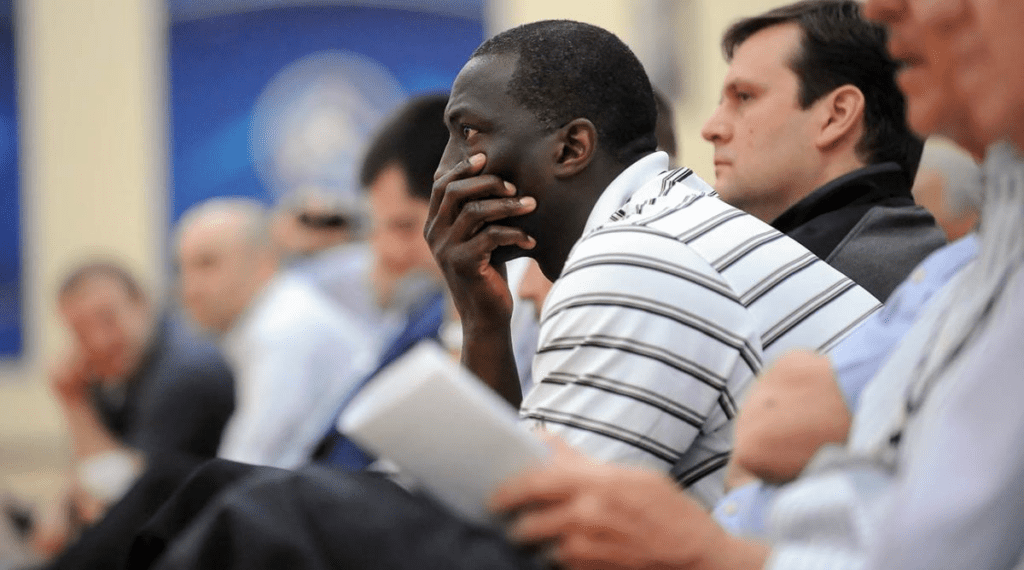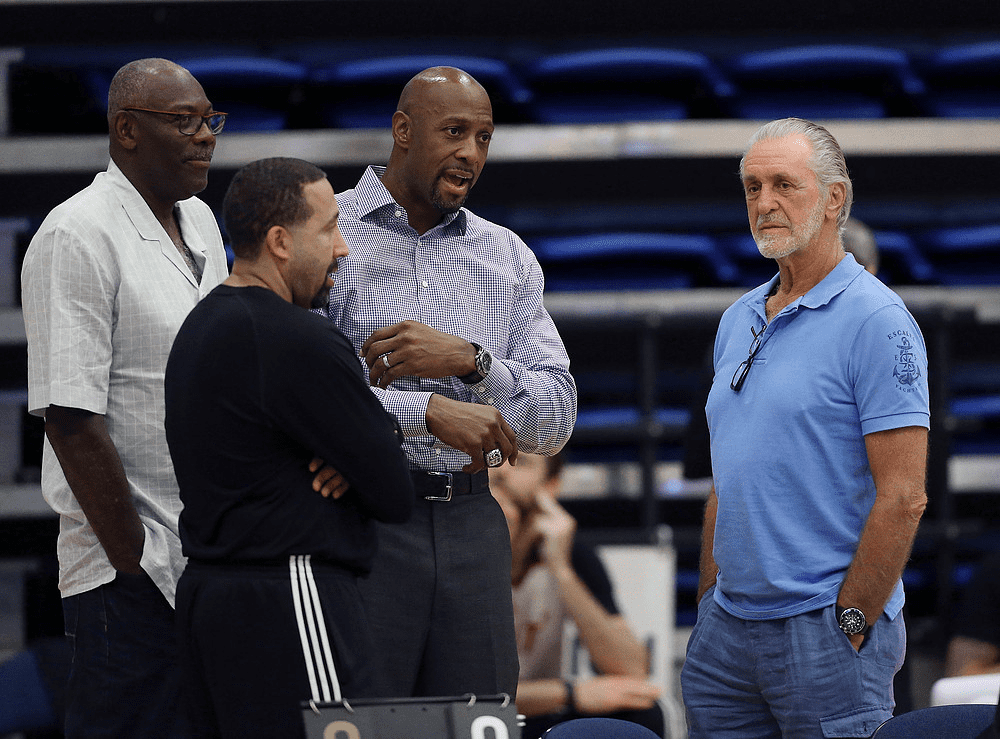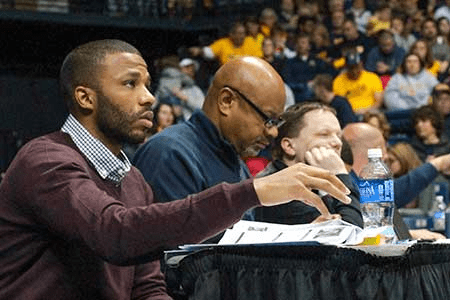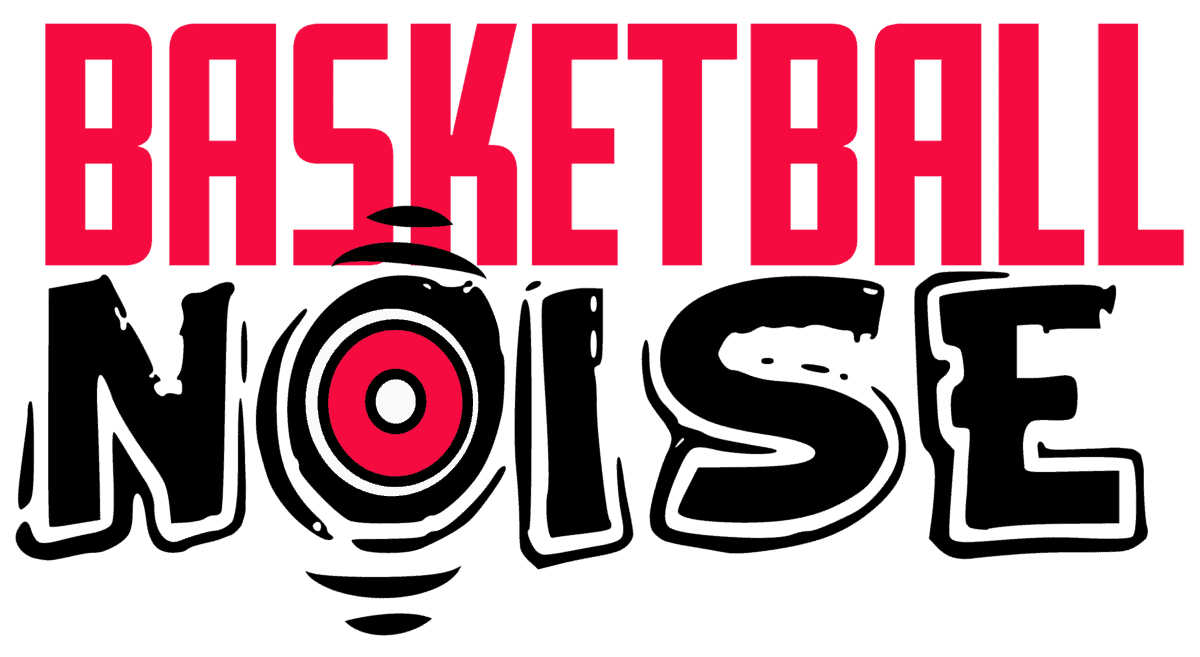Scouting in the NBA is considered one of the most responsible jobs. They help teams to discover new talents which, with some luck, will later will become stalwarts of respective franchises.
How do you become an NBA scout? While there is no set of rules which would help you to become a successful scout, you need to know the essence of basketball, watch games and have sufficient experience, which would later assist you in recomending the pros and cons of different athletes within the team fit.
While scouts do not get enough public credit for their job, their work is immensely important to the franchises they work for. Let’s have a look at the necessary steps, pivotal to becoming an NBA scout.
Learning the Game
It goes without saying that knowing the concepts of a basketball game is very important to understand the rules and how everything works. Of course, playing, coaching and general history is a part of the basketball game which every scout should be familiar with.
Education
Scouting is a tough job that requires necessary education. You cannot just become a scout without getting a degree in particular directions, which would be helpful for future activities. In the United States, there are separate branches of sports education, which are primarily directed towards people who want to learn more about the scouting process.

Experience
The NBA is considered the best and most popular league in the world – there are no questions about that. If you do not have enough experience, or worked in the respective sector for some time, it will be impossible to get a job. The main idea is that if you have worked at a volunteer level even, it will be extremely helpful to aid in the hiring process.
Watching Matches
The more matches you watch – the better chances for you to discover novelties and find out more about different players. Of course intuition is also important. We have seen a lot of cases when players were drafted as the first overall pick, but they failed to live up to expectations. Watching more NCAA matches, or even college-level games will make you understand better what are the strengths and weaknesses of a particular athlete and team.
Networking
By acquiring new contacts, you will be able to rapidly develop relationships with different teams. This in the future, will help you to develop strong ties with famous NBA teams. Networking process is the most inferior compared to the criteria above, that are necessary to become an NBA scout.

What is the NBA Scouting System?
The NBA scouting system is rapidly undergoing significant changes. In the old days when digital video first appeared, and game cataloging was a newfangled concept, scouts relied more on individual analysis, experience and instinct. Today, with the advent of new technologies, scouting has become easier.
But that doesn’t mean that NBA game scouts will be replaced or thrown into the dustbin of history with fancy cameras – they just can now spend less time on hard and mundane work, and more on direct analysis.
After a few days of intensive lectures, workshops, and networking, the participants leave the scout school and with new connections, they start a career in basketball.
Relationships are marked in a noticeable way throughout the entire life of the scouting school. Not only from the point of view of who you know, but for the most part, what is your knowledge. Almost anyone can turn on the TV or go watch a match, and over time you will develop some understanding of how to watch the players. But all you see is their actions on the floor. All of the school’s speakers tirelessly emphasize that in order to be a truly successful scout, you need to dig a little deeper.

Important Criteria
Scouting components include first of all basketball and measurements: The obvious key is identifying whether a player can “play” or not. But you should definitely consider different scenarios and situations. What is the level of competition? What are his teammates? And you can’t make a sudden verdict after seeing the player just once.
Medicine is another essential factor: what is the player’s medical background? Are there any problems you need to be aware of? What about his family’s medical history? These are all important factors in drawing up a complete picture of the player in question.
Analytics and the latest technology – two new but equally important aspects are the translation into the working language of the player statistics. In the United States, a guy can make a pass, and another player knocks the ball on the floor eight times, makes a crossover, scores – and this will be considered a pass. In Europe, a pass must result in the ball going directly into the basket.

How do you apply relationships to all of the above? You must have good, reliable, trusting relationships with the people from whom you receive information. A good scout must be able to navigate the vast sea of information in order to get really useful information out of it. Sometimes a brief commentary on a player’s work ethic is far more valuable.
It is also important who you build a relationship with. Coaches are a pretty obvious group that you need to know and trust. But other team personnel are equally important. It is possible to collect a good pool of information from both the general manager and the equipment manager. Your goal is to find out everything you can about the players. How do they relate to people? Do they participate in community events? What is their daily life like? The scout also needs to build relationships with the players’ agents, families and friends.
